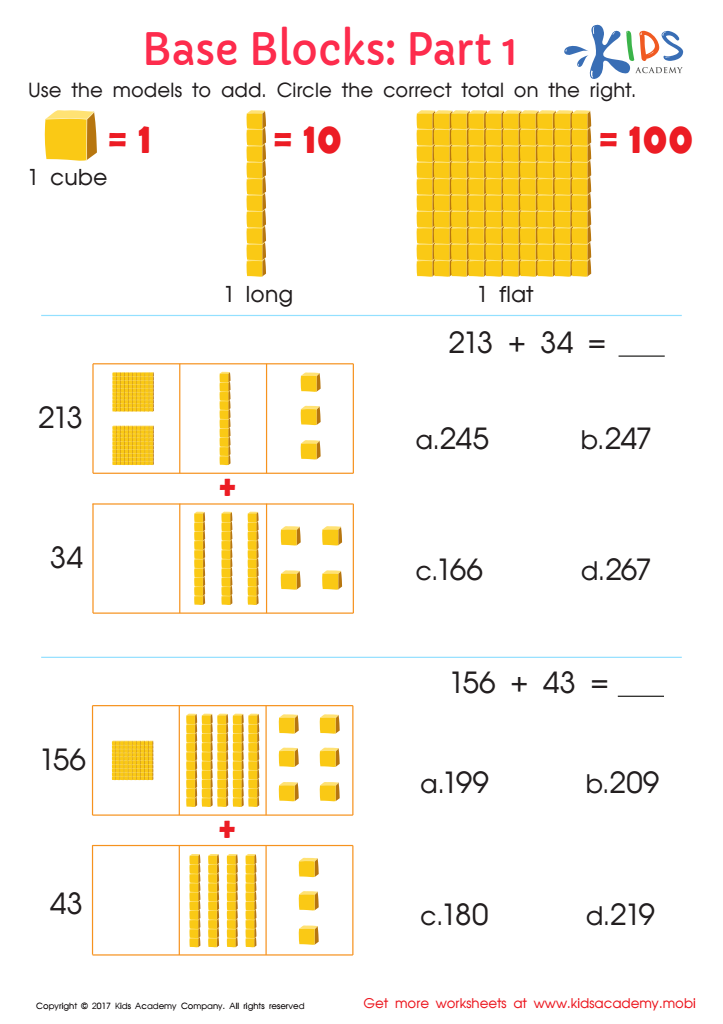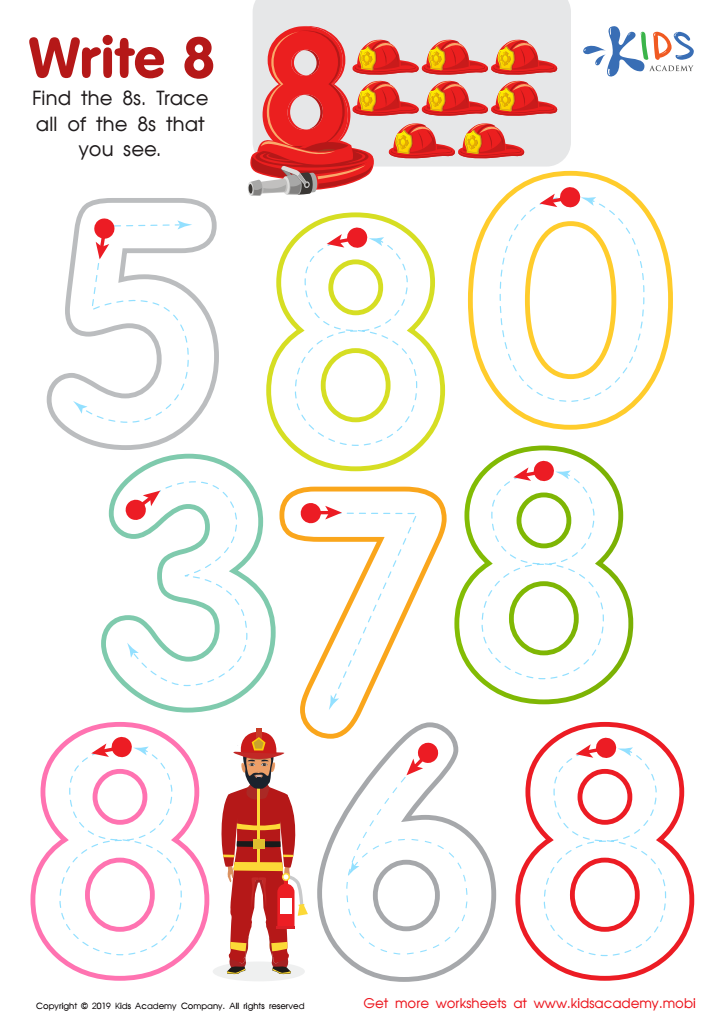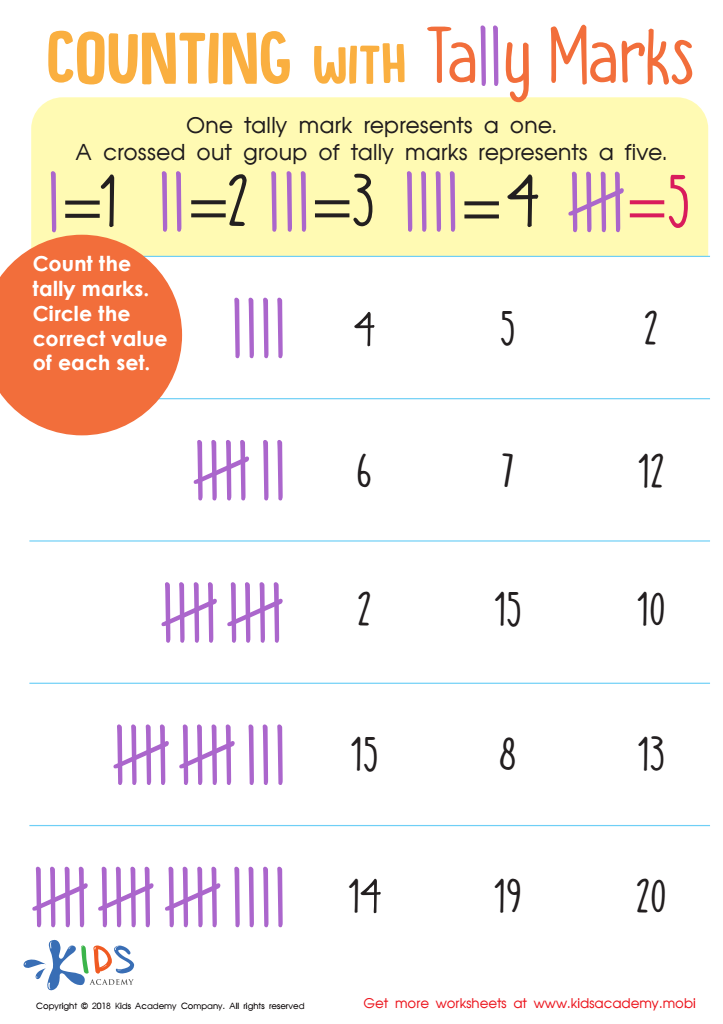Number representation Numbers Worksheets for Ages 5-8
3 filtered results
-
From - To
"Number Representation Numbers Worksheets for Ages 5-8" from Kids Academy offers engaging and educational resources designed to help young learners develop foundational math skills. These printable worksheets introduce children to numerical concepts, encouraging them to practice writing numbers, recognizing different number forms, and understanding one-to-one correspondence. Perfect for ages 5-8, the activities are crafted to make learning interactive and fun, supporting the development of critical thinking and problem-solving abilities in early grade students. Discover a variety of structured and enjoyable exercises to boost your child's confidence and prowess in math.


Base Ten Blocks Worksheet: Part 1


Write 8 Worksheet


Counting with Tally Marks Worksheet
Absolutely, parents and teachers should pay attention to number representation for children ages 5-8 because it's a foundational skill that underpins future mathematical understanding and proficiency. At this formative stage, children are developing critical cognitive abilities, and mastering number representation helps them grasp more complex mathematical concepts later on.
Firstly, understanding number representation involves learning how numbers can be depicted in various forms, such as written numerals, pictorial representations (like groups of objects), and verbal descriptions. This multifaceted understanding is crucial for performing basic arithmetic operations like addition and subtraction.
Secondly, it fosters logical thinking and problem-solving skills. When children learn that numbers symbolize specific quantities and understand how to manipulate these numbers, they begin to think critically and hone their problem-solving capabilities.
Thirdly, early fluency with numbers builds confidence. Children who master number representation tend to feel more assured in their math skills, reducing anxiety and fostering a positive attitude towards learning math.
Lastly, this knowledge lays the groundwork for real-world applications. Simple tasks like telling time, handling money, or measuring ingredients in a recipe all hinge on number comprehension.
In sum, investing time and effort in teaching number representation equips children with essential skills for academic success and everyday life, making it an important focus for parents and teachers.
 Assign to My Students
Assign to My Students

















